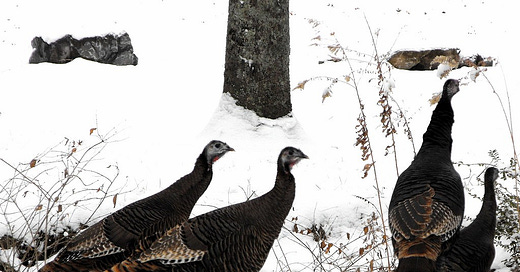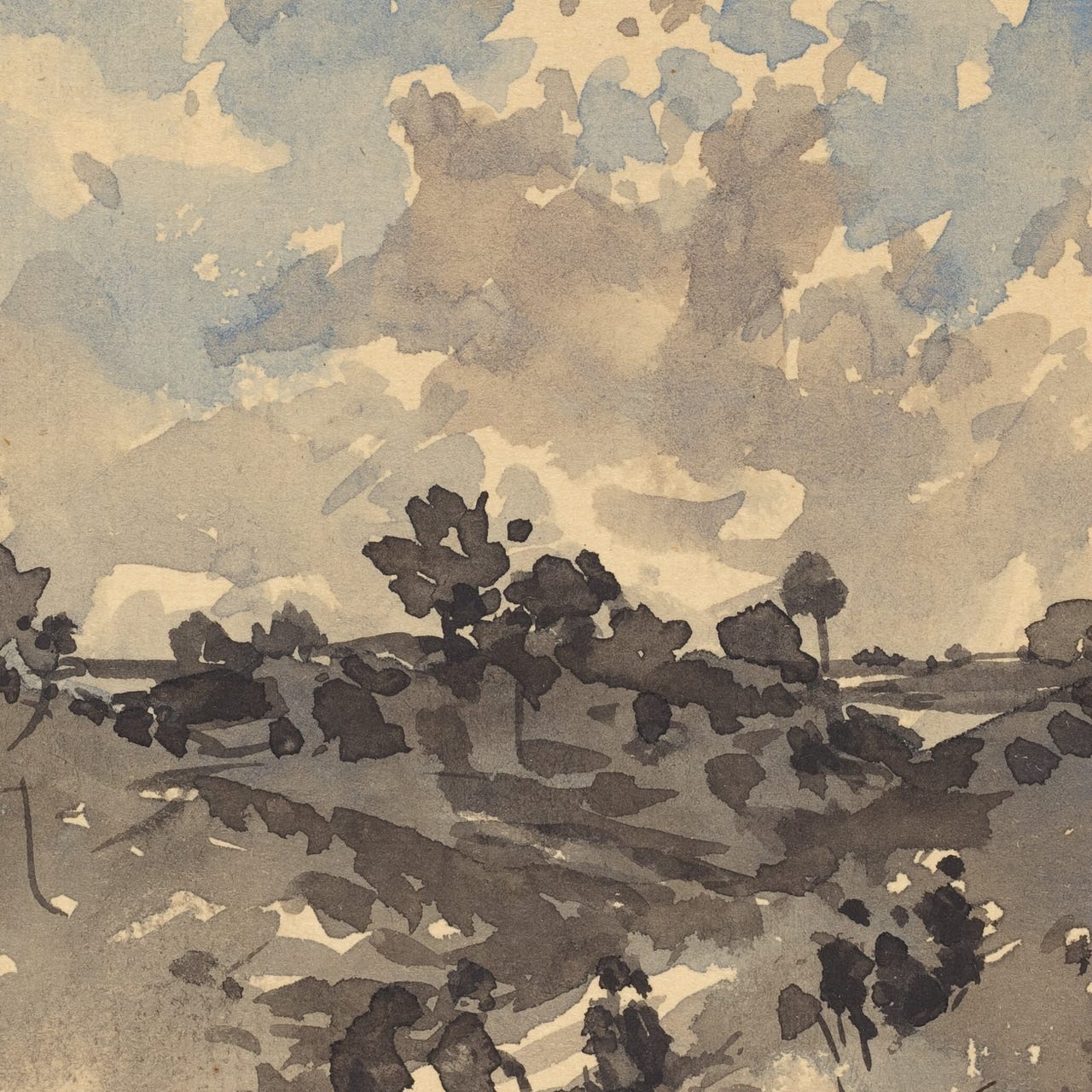[Image: “cold turkey!” by mikebfotos, licensed under CC BY 2.0.]
I sat down at my desk this morning after Mass—where, with difficulty, I had refrained from looking at the red bubbles on my fizzing, buzzing phone, except to look up the readings in iBreviary. It had felt so clean. So refreshing. A shower for the mind.
Now I had my coffee and my plan: time to work on the manuscript of my next novel. The last one took me fifteen years. This one can’t take another fifteen years. I am getting older. The people I love are getting older. We don’t have that kind of time to fool around in anymore.
I hadn’t been sitting there eighty seconds when the itch began:
I wonder what they’re up to over there.
You know, on the Chiasmus. Or, better, the Chasm. The site formerly known as the Bird. As a side note, my teenager still calls it the Bird (actually, the Birb, in a running household joke whose inciting incident I have now forgotten. The Teen doesn’t have an account on it, nor even a smartphone, but loves to sneak over to my desk and catch me looking at my account ever since learning that I consider it a distraction to be avoided. Since the Teen frequently gets corrected for falling prey to distraction, the chance to correct someone else who is distracted, especially someone in authority, feels, to the Teen, extremely gratifying).
Anyway, I don’t even have the Bird on my phone. I never did. I had the F on my phone for a while, but I took it off there long before the Great Collapse of 2020. I’ve never had the Video Rabbithole nor any of the Extra Cameras. (The Teen calls all of these things “Birbs” and, really, where’s the lie.) If I am going to use any of these sites, I force myself to sit down at the computer and be honest with myself, like an adult, about what I am doing.
Still, the itch in the mind persists:
I wonder what they’re up to.
The itch this morning felt all the more intense, for reasons I won’t get into here. You would think, the number of times I’ve read that bit in Voyage of the Dawn Treader with the magic eavesdropping book, I’d have known better.
Instead, temptation. Bird flu. The vice of curiositas:
I wonder what they’re up to. I wonder what they’re saying. I wonder what it has to do with my life. My experience. My work.
Me. Me. Me.
Me? But I am a good person. I am not self-involved. I am principled and other-focused. I am committed to the Right Things. We all think this, don’t we? Just as well to admit it. It’s the original illusion. Its reasoning, always circular, always also feels valid: What I want to do is justified because I want to do it. I am good, so my desires must be good too.
The logical flaw here is obvious, but also easy to miss, because who wants to see it? Who wants to admit they want something that could actually, easily, become—or already be—quite damaging?
David Foster Wallace, either in Infinite Jest or in an essay from around the same time, defines addictive behavior as that which relies on a Substance to solve the problem the Substance itself causes. People talk in blithe formulae about social media addiction, screen addiction, but I think few realize how these etheric glowing words refer just as much to chemical dependency as with more ingestible Substances. How the screen’s apparent offer of some kind of life of the mind, its often pseudointellectual imitation of reason, tries to address loneliness by turning to the source of loneliness. To fix isolation by turning to the cause of isolation. To get us out of ourselves by driving us deeper into ourselves.
So many of us, when we are worried about fragmentation, polarization, and radicalization—let alone other problems, also worth addressing—turn around and try to address these phenomena by the same acts that generate, worsen, and intensify them. In the very same act by which we raise our complaints—all while we tell ourselves we are Speaking Up, Speaking Out, Using Our Voices—we burrow deeper into the very same source that fragments, polarizes, and radicalizes.
At worst, this nebulous Substance-addiction can devolve into a kind of self-addiction, bordering on narcissism, in which the only things that can interest the mind anymore are those in which it has some kind of ego investment—because of pleasure, maybe, or maybe because they promote some kind of abstraction with which the mind has embroiled its sense of purpose but which may or may not track to the real meaning embedded at the heart of things.
This embroilment is a live danger for anyone with the capacity for abstract thought. To think oneself exempt from that danger because of self-reported good desires and good intentions is a real naivete, a common one, and worth examining ourselves to root out.
As with all worthwhile admonition, this is both reflective and reflexive. I am first admonishing myself: Just because a thing involves words and reading, or “connecting” with “likeminded” others, doesn’t mean it can’t be bad for you. We’ve all seen how sour it is when a supposedly good-faith conversation turns bad-faith, and how fast this can happen. We’ve all also seen how quickly the malevolently clever, with good debating technique but erroneous conclusions, can turn true conversation into false controversy by twisting logos into headgames, ethos into groupthink, pathos into cruelty.
And I know I don’t want anything to do with that. Ever.
So I’m taking a leaf out of Wallace-protagonist Don Gately’s book, and I am stepping right into withdrawal. Detoxing. In Gately’s words, “kicking the Old Cold Bird.”
I will not read or engage with any legacy social media until after All Souls’ Day (that’s Nov. 2 for my atheist and agnostic readers—love you). I might take ten minutes on Saturdays to clear my notifications so they don’t get too horrible. But it’s not like I even post that much, on those sites; I mostly just read, obsessively: and what little reading time I have is, really, better spent elsewhere. Here, for example. Or with a book. A paper one. (Remember those?) And what little social time I have is better spent either in person, or on a call or email or letter with someone who’s far away. (Far-away readers—love you; call me.)
November 2 is a while from now. My own paper book could go viral in that time. Anyone at all could stir up any kind of drama out of my earshot, about me, without me. I don’t care. I won’t be listening. I am not signing on.
Because more than I would like anything else right now, I would like not to be like the bodiless shrunken soul living in the sidewalk crack in Lewis’ The Great Divorce, the soul which, if it cannot scratch, would still rather itch than not. Would rather have Bird flu than be well. Would rather fall into the gap than rise.
Which means I really might never go back to the legacy Birds, in any significant way. Which might not be loss at all, but gain.






Great article, thanks. I've reduced my sm time substantially but there is more to do. Not sure I can go cold turkey because - cat pics- but I'm getting there. Sm increasingly seems to be a mda place populated by sad, angry and slightly crazy people. I hope not to be one of them!
This came at just the right time for me! It gave me goosebumps at just how right. I have been struggling with the idea of just letting fb go - into the wind! It’s harder than I thought. You are my hero! Thanks for writing this!!!